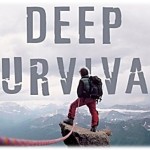WoW-features two sets of Words on Wednesdays today:
Jesse Hughes recovers from part 1 with Lessons of Sunk Costs and then he recommends a book of value as he learned to navigate his newly civilian and student role:
Sunk Costs, pt 1The time Ms Tardy put into her proposed plan was truly a sunk cost. She attempted to base a decision on expenditures that could not be recovered. It’s tough to recognize when it’s your own idea, plan, opportunity but you have to learn to separate your work product from your sense of self and associate it with an outcome. This is not art, this is business, and in business products are designed to achieve certain results. Be sure that the product is the best one for getting the job done.
That lesson is pretty straightforward; the next ones were harder to recognize at the time.
Business Objectives
Let me lead with a negative: The objective of business NOT to conduct the most efficient meeting possible. The Objective of Business is the methodical development and exploitation of opportunities. When viewed through this perspective, I failed. Miserably. My actions as the group coordinator isolated Ms T and made her resent me as the embodiment of everything that went wrong for her that day. I traded all future business opportunities from her for the short-term gain of an efficient meeting. I didn’t recognize the situation for what it really was; in short, I won the battle but lost the war.
Sunk Costs, pt 2
I analyzed this meeting and interaction all wrong and failed to analyze the sunk costs correctly. (Meeting prequel info here)
My one hour allotted for the meeting was already sunk. That time would not come back to me, so how could I have maximized my return? The group already closed Ms T’s idea down. I gained nothing by piling on. I could have won an ally with a simple, “let’s talk about this afterward, or let’s revisit the idea at the next meeting.”
Perhaps her idea itself had merit but wasn’t presented well because she was off her game, or the rest of the group was biased against it on account of her habitual lateness. Perhaps talking it through separately she would have recognized it to be a bad idea and withdrawn the proposal on her own. Any number of outcomes would have been possible, but only one outcome could result from me shutting her down.
Post Script – Tardiness
Notice I didn’t talk about how to handle tardiness. There is no consistent culture in business. I believe that it comes down to three things: poor time management, relative power, and/or respect.
Poor Time Management
This reflects poorly on you, so avoid this pitfall. Plan your work and work your plan. It doesn’t take a lot of time or energy to set up a plan, but it pays off big time when others see you as dependable and organized.
Relative Power
Just because you CAN be late to a meeting and not worry about the repercussions does not mean that you should. Often this is because people feel that their power, relative to the other members in the meeting, is greater and therefore the consequences are negligible. While you may get away with this in the short-term, it is always noted, and nearly always resented by the person running the meeting.
Respect
Nothing shows more respect than showing up on-time for one of your subordinate’s meetings. Some senior managers lean heavily on their relative power and make subordinates wait on them. True leaders show respect for those they lead and show up on time, regardless of who’s running the meeting.
There’s lots of ‘depth’ and waves of awareness in the Sunk Costs saga Jesse shared… Let’s see, military approach overlayed onto civilian OS, newbie yet mature student experience negotiating human behavior, maybe even gender divide and annoying ‘other people’ habits.
“There are so many books from which to choose, but Laurence Gonzales’s book “Deep Survival” really stood out in relation to the experience I shared in this post.”
(FYI & link below for Amazon peek inside) “Deep Survival” by Laurence Gonzales. Paperback: 318 pages
- Publisher: W. W. Norton & Company;
- Reprint edition (October 17, 2004)
“I found the subject matter interesting but I think readers will find the conclusions as counter-intuitive. Those who are most likely to survive are not the ones we think we can predict – particularly not those of us in the military. It’s not the A-type, bullish, and brave. Rather, it is the individuals who exercise humility, who seek information, who avoid impulsive behavior, and seek to understand the situation.
Entering the civilian world is an exercise in survival. The military has provided certain skills, and I think to both survive and thrive, they must be applied to learn about the new environment, to adapt, and to apply what we know. The skills and patterns that worked in the military must be adapted, they cannot all be strictly applied.”

Speak Your Mind